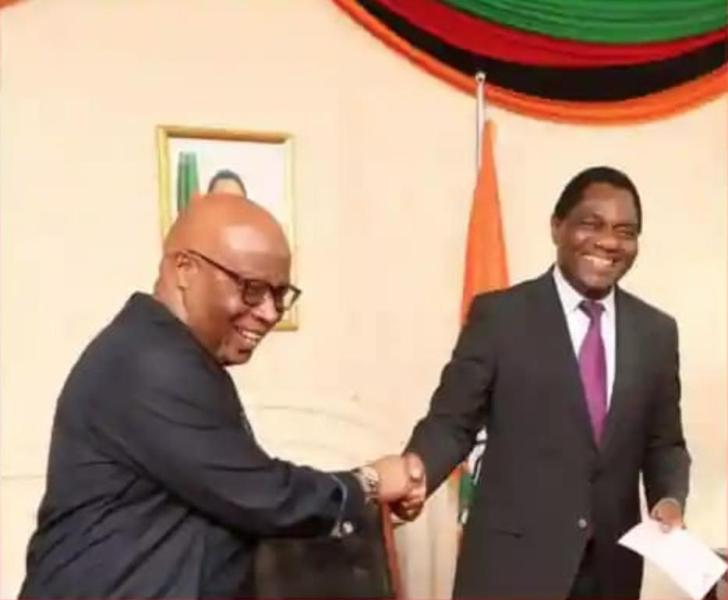News / Local
SADC closes Zimbabwe's 2023 election chapter
14 Oct 2023 at 02:25hrs | Views

In a significant move that underscored its independence from CCC leader Mr. Nelson Chamisa and his Western supporters, SADC released its conclusive report on the Zimbabwean elections on Thursday. Notably, this report omitted the biased statements found in the highly discredited initial assessment from the SADC Election Observer Mission (SEOM). With this release, the chapter on Zimbabwe's 2023 election has been effectively closed, leaving the opposition and their Western supporters grasping for alternative narratives.
Contrary to the CCC's hopes for fresh elections or an extraordinary SADC summit, the final report commended Zimbabwe for successfully conducting free and peaceful elections. The report specifically praised the people of Zimbabwe for their peaceful conduct throughout the entire electoral process, from the pre-election phase to voting days and the immediate post-election period. Furthermore, it commended the country's political leaders for promoting a message of peace and non-violence throughout the electoral cycle.
While the final report did raise concerns about certain aspects of the August 23 harmonized elections, such issues are not unique to Zimbabwe. It recommended that any aggrieved parties seek remedies through the country's internal legal processes to address their concerns.
The opposition had alleged election rigging but had not pursued legal remedies in accordance with Zimbabwe's laws. Instead, they relied on the questionable and widely discredited SEOM preliminary report as a political lifeline. The final report has now dashed these misplaced hopes, as its recommendations will be considered solely by Zimbabwe to accept or reject.
The report cites Section 11.8.2 of the SADC Principles and Guidelines, which states that member states that have held elections may consider the SEOM's recommendations for improving the conduct of elections and submit a response to the Chair of the Organ.
This development is a significant rebuff to CCC leader Mr. Nelson Chamisa, who had been seeking regional support for the adoption of the biased preliminary report. Essentially, SADC's message to the opposition leader is to address their grievances through internal mechanisms and processes.
The softened tone in the report can be seen as a response to Harare's vigorous rejection of the biased preliminary report and the diplomatic efforts made by President Mnangagwa during his trip to the United Nations General Assembly in September. These efforts led to the deployment of more impartial observers for regional plebiscites.
However, the European Union (EU) appears to be the biggest loser in this situation. The EU had hoped to gain traction from a critical SADC report but now faces the dilemma of whether to tone down its forthcoming final report, scheduled for November, in light of changed circumstances. It remains uncertain whether the Zimbabwean authorities will allow the EU team to enter the country, given their well-documented preconceived stance on the country's elections even before they took place.
These developments come after Brussels was informed of questionable alliances between some of its staff and CCC members, including Gladys Hlatshayawo, who allegedly received substantial sums of money ahead of the elections. Ultimately, SADC has chosen to stand by Zimbabwe, a country set to assume the chairmanship of the regional body next year, which might have contributed to the milder tone of the final report.
Contrary to the CCC's hopes for fresh elections or an extraordinary SADC summit, the final report commended Zimbabwe for successfully conducting free and peaceful elections. The report specifically praised the people of Zimbabwe for their peaceful conduct throughout the entire electoral process, from the pre-election phase to voting days and the immediate post-election period. Furthermore, it commended the country's political leaders for promoting a message of peace and non-violence throughout the electoral cycle.
While the final report did raise concerns about certain aspects of the August 23 harmonized elections, such issues are not unique to Zimbabwe. It recommended that any aggrieved parties seek remedies through the country's internal legal processes to address their concerns.
The opposition had alleged election rigging but had not pursued legal remedies in accordance with Zimbabwe's laws. Instead, they relied on the questionable and widely discredited SEOM preliminary report as a political lifeline. The final report has now dashed these misplaced hopes, as its recommendations will be considered solely by Zimbabwe to accept or reject.
This development is a significant rebuff to CCC leader Mr. Nelson Chamisa, who had been seeking regional support for the adoption of the biased preliminary report. Essentially, SADC's message to the opposition leader is to address their grievances through internal mechanisms and processes.
The softened tone in the report can be seen as a response to Harare's vigorous rejection of the biased preliminary report and the diplomatic efforts made by President Mnangagwa during his trip to the United Nations General Assembly in September. These efforts led to the deployment of more impartial observers for regional plebiscites.
However, the European Union (EU) appears to be the biggest loser in this situation. The EU had hoped to gain traction from a critical SADC report but now faces the dilemma of whether to tone down its forthcoming final report, scheduled for November, in light of changed circumstances. It remains uncertain whether the Zimbabwean authorities will allow the EU team to enter the country, given their well-documented preconceived stance on the country's elections even before they took place.
These developments come after Brussels was informed of questionable alliances between some of its staff and CCC members, including Gladys Hlatshayawo, who allegedly received substantial sums of money ahead of the elections. Ultimately, SADC has chosen to stand by Zimbabwe, a country set to assume the chairmanship of the regional body next year, which might have contributed to the milder tone of the final report.
Source - The Herald








































